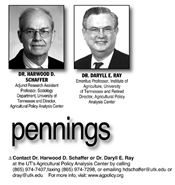|
So, What Has Been Considered “Progressive” In The Past?

With the election of four young women – Alexandria Ocasio-Cortez, Rashida Tlab, Ilhan Omar, and Ayanna S. Pressley – to the US House of Representatives the word “progressive” has visibly returned to the political arena. For those who use the word progressive to describe themselves, it is a positive term that speaks to the reduction of corporate power and the improvement of human life. Others are frightened by the word, conjuring up visions of state ownership of the means of production and the intrusion of the state into every aspect of our lives.
As agricultural analysts, we are interested the historical impact of progressive legislation on farmers, rural areas, and the agricultural community in general.
Two of the legislative acts that came out of the Progressive Era – roughly 1890 to 1920 – were the Pure Food and Drug Act and the Federal Meat Inspection Act, signed on the same day by Republican President Theodore Roosevelt. While concerns about patent medicines and adulterated or spoiled foods had been raised for more than 20 years, the publication of “The Jungle” by Upton Sinclair with its description of the unsanitary conditions in the meat packing industry captured the attention of the nation. Congress responded quickly with these two laws.
Together they protect the quality of the drugs we purchase. In addition, they set minimum standards for the food and meat that we eat and protect human health by issuing recalls when a problem is found. In 2018, the USDA Food Safety and Inspection Service (FSIS) issued 125 meat-related recall notices. The Food and Drug Administration issues recall notice for all foods other than the meats, poultry and egg products covered by the FSIS.
The Capper-Volstead Act, adopted in 1922, permits farmers to organize themselves into associations (cooperatives) for “collectively processing, preparing for market, handling, and marketing” of their products as long as “such associations are operated for the mutual benefit of the members.” Any complaint that “such association monopolizes or restrains trade” is handled by the Secretary of Agriculture and not by general anti-trust regulations. Capper-Volstead has been called the Magna Carta of agricultural cooperatives.
The Agricultural Adjustment Act of 1933 was one of the first progressive pieces of legislation adopted by the Franklin Delano Roosevelt administration in its first 100 days. It was adopted to deal with the low-price problem that farmers faced during the early years of the Great Depression. Though parts of it were invalidated by the Supreme Court, it provided the foundation for a succession of farm bills that continue to today. These pieces of legislation seek to include policies that ameliorate the chronic price and income problems faced by farmers.
While it was not originally directed toward the self-employed and farmers, the Social Security Act of 1935 was another piece of progressive legislation. It provided income for retirees 65 and over. Farmers and other self-employed persons were included at a later date. For many Americans, Social Security is an essential part of their retirement program. Without it, many retirees would literally be in the poorhouse.
We are old enough to remember when President Lyndon Johnson signed the legislation that established Medicare and Medicaid in 1965. We remember the howls at the time, saying that Medicare would lead to socialized medicine. This piece of legislation did not have that result, but instead improved the quality of medical care for those 65 and older. The impact of this legislation on the elderly and to some extent the poor has been significant.
For many farm retirees, Social Security and Medicare are critical to their quality of life and few would be willing to give them up.
As we continue through the perpetual election season that is now a part of modern life, when people try to distract us from evaluating legislative proposals by labeling them progressive, we need to step back and look at the many ways in which our lives and those of our friends and neighbors have been positively affected by the progressive legislation of the past. ∆
DR. HARWOOD D. SCHAFFER: Adjunct Research Assistant Professor, Sociology Department, University of Tennessee and Director, Agricultural Policy Analysis Center
DR. DARYLL E. RAY: Emeritus Professor, Institute of Agriculture, University of Tennessee and Retired Director, Agricultural Policy Analysis Center
|
|